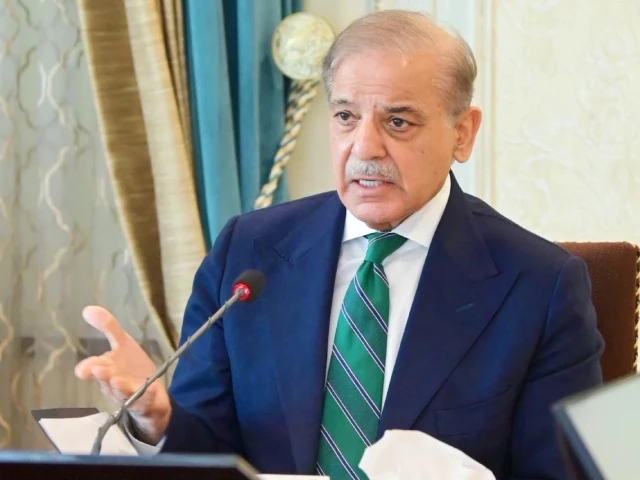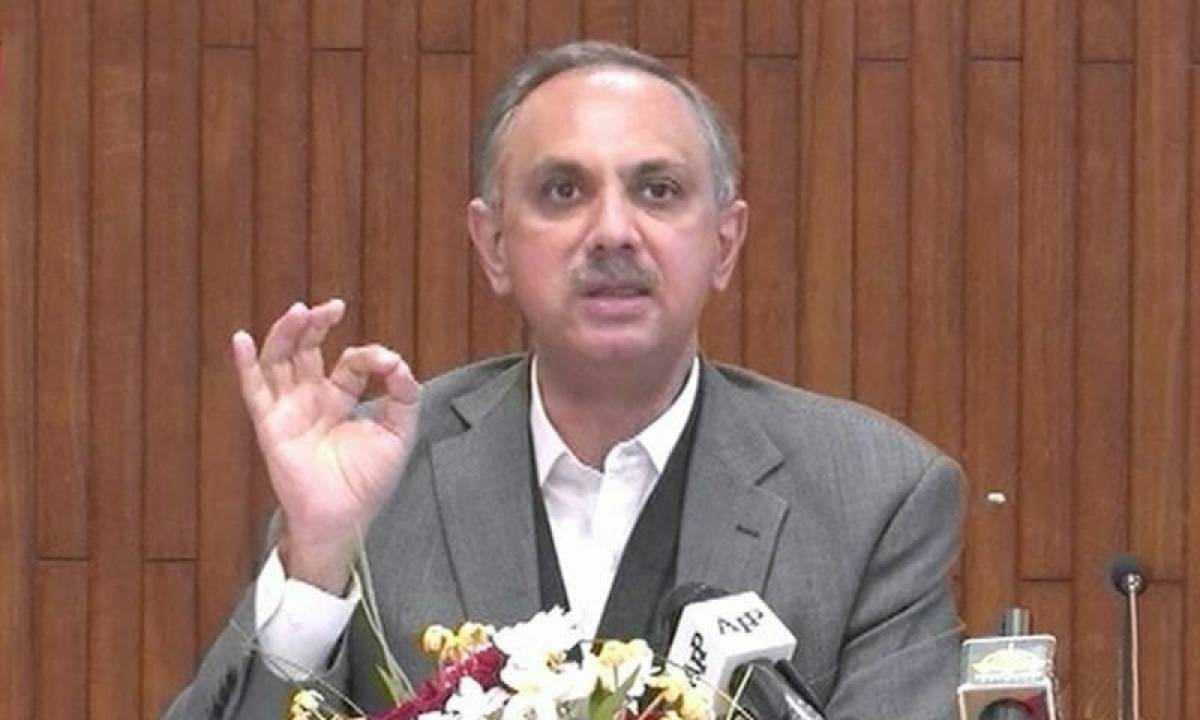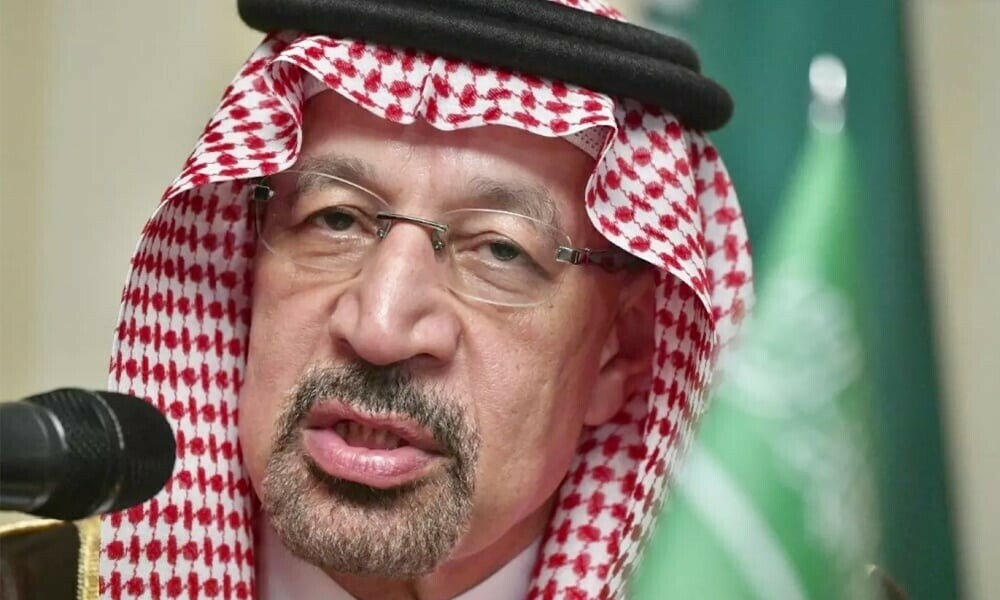PTBP Web Desk
Prime Minister Shehbaz Sharif on Thursday issued a powerful and unequivocal condemnation of the recent Israeli naval operation against a Gaza-bound aid flotilla, labeling the action as an “act of barbarity.” The strong diplomatic response comes amidst growing international outcry over the interception of the Samud Gaza flotilla, a civilian-led mission attempting to deliver vital aid and humanitarian assistance to the blockaded Palestinian territory.
Speaking from London, where he is currently on an official visit, the Prime Minister utilized the microblogging platform X (formerly Twitter) to voice Pakistan’s staunch position. “Pakistan strongly condemns the dastardly attack by Israeli forces on the 40-vessel Samud Gaza flotilla, carrying over 450 humanitarian workers from 44 countries,” PM Sharif wrote. His statement highlighted the sheer scale of the humanitarian effort that was targeted.
The heart of his message was simple yet profound: “Their crime was to carry aid for the hapless Palestinian people.” This concise observation cuts directly to the moral core of the controversy. He further emphasized the critical need for a de-escalation of conflict and a focus on relief efforts, asserting that, “Peace must be given a chance, and humanitarian aid must reach those in need.” The Prime Minister’s firm demand centered on ensuring safe passage for humanitarian assistance to reach the beleaguered population of Gaza.
The Interception: Details of the Samud Gaza Flotilla Incident
The ill-fated convoy, officially named the Gaza Sumud Flotilla, had embarked on its mission from international waters earlier in the week. The fleet comprised approximately 40 vessels, laden not with weapons, but with essential medical supplies, bulk food items, and crewed by a diverse, multinational group of humanitarian volunteers and civil society activists. Their goal was explicit and singular: to publicly and peaceably break the long-standing Israeli blockade on Gaza.
The interception occurred on Wednesday in the eastern Mediterranean Sea. Reports confirmed that Israeli naval forces forcibly engaged the civilian vessels. Israeli authorities, however, maintain that the flotilla was attempting to breach a “legally enforced maritime blockade” that they claim is necessary for security reasons. Conversely, activists on board and international observers have vehemently condemned the operation, describing it as a disproportionate and excessive use of military force against unarmed civilians.
Concerns Mount Over Detained Nationals, Including Senator Mushtaq Ahmed
The incident took a particularly domestic turn for Pakistan as official sources confirmed that Pakistani nationals were among those detained during the naval operation. Alarmingly, this included Senator Mushtaq Ahmed, a prominent political figure from the Jamaat-e-Islami party, alongside several other Pakistani citizens.
The Foreign Office (FO) in Islamabad has been quick to react to these developments. Confirming the detentions, the FO released a statement assuring the public that it is actively engaged and in direct contact with “relevant international bodies.” The paramount concern for the Pakistani diplomatic corps is twofold: ensuring the safety and well-being of the detained citizens and securing their immediate and unconditional release. This high-level diplomatic push underscores the seriousness with which Islamabad views the detention of one of its sitting legislators on international waters.
Global Outrage and Echoes of the Mavi Marmara Raid
The forceful Israeli interception has not been met with silence on the global stage. International reaction has been swift and overwhelmingly critical, sparking widespread condemnation from human rights organizations, civil society groups, and numerous governments. Many human rights groups have drawn chilling and unavoidable parallels between the recent operation and the deadly 2010 Mavi Marmara raid.
In that infamous incident, Israeli commandos boarded a similar aid convoy bound for Gaza, resulting in the tragic deaths of nine Turkish activists. The comparison with the Mavi Marmara raid highlights the potential for serious escalation and the inherent dangers faced by humanitarian workers operating near the blockade. The international community is keenly aware that operations of this nature carry a significant risk of violence and loss of life.
Pakistan’s Consistent Stance on the Palestinian Cause
Pakistan’s official stance in this matter is rooted in a long and consistent history of unwavering support for the Palestinian cause. Islamabad has repeatedly denounced Israeli actions in Gaza and the wider occupied territories as clear violations of international law. The recent action against the aid convoy, in Pakistan’s view, represents yet another egregious example of these transgressions.
Prime Minister Sharif made it clear that Pakistan views the criminalization of humanitarian efforts as unacceptable. The provision of food, medicine, and other essential aid should be an act of universal human compassion, not an act that invites military aggression. In his final remarks on X, the Prime Minister drove home the broader, long-term implications of such actions. “Such acts of aggression only deepen the suffering and delay the prospects of peace,” he concluded. This statement encapsulates Pakistan’s diplomatic philosophy, which advocates for a peaceful, negotiated settlement that respects the rights of the Palestinian people and ensures the unhindered flow of essential supplies.
The incident has brought the plight of the Palestinians and the controversial nature of the Gaza blockade back to the forefront of the international agenda. The focus now shifts to diplomatic channels as Pakistan and other nations push for the release of their citizens and a lasting mechanism for humanitarian assistance to safely reach Gaza.




